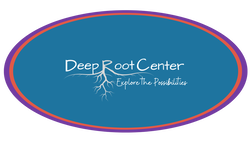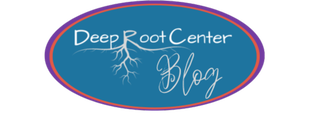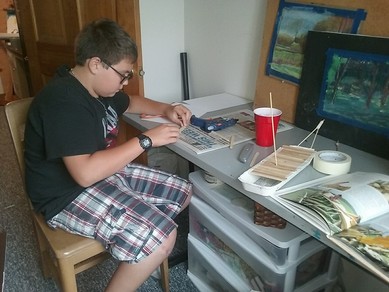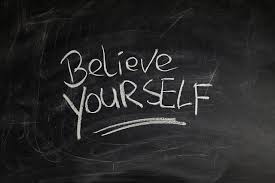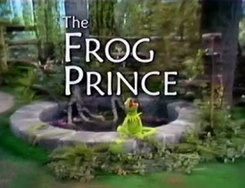 I realized while I was walking Saturday morning, that my head was up and I was transfixed, actually engrossed, by the newly bare trees, the multicolored leaf covered forest floor, the little bird (nuthatch?) flitting from tree to tree, the clouds scuttling across the sky, the small delicate hoof tracks along the side of the road, the black swirling water of the stream, and the raucous, rowdy geese flying overhead. I was not consciously paying attention to my foot steps at all; walking was totally and completely automatic and seamless. In that moment, I fully comprehended the concept of trust. My mind trusted my body (Or, is it the other way around?) to negotiate the many obstacles, that are all part of a dirt road, to get me to my “turn around tree” and back home, safely. This “a-ha moment,” as always, was immediately translated into thoughts about my everyday experiences with the students at Deep Root Center. Even though I speak and write (okay, lecture) about trusting each child's intrinsic motivation, interests, and desires, it hadn't completely cemented into my own psyche until that moment. Expecting and, yes, believing that each child inherently knows what they need goes against every cultural message of control and direction that we have heard our whole lives. These memes have become so ingrained in our society that even I sometimes find myself questioning (worrying) what other people are going to think when they witness or hear about the slightly chaotic, community oriented, unstructured, and individualistic daily activities at DRC. In those moments of worry, I find myself wanting to direct, lead, demand, or even curb my students away from their natural tendencies of self-direction. Before I go any further, I first need to explain that the title (quote) is one that comes from one of my favorite cultural reference points, The Muppet's-Frog Prince, circa 1972. Even though Sesame Street and The Muppet Show were two of my childhood staples (And yes, are the basis for most of my cultural reference points. I mean, come on, didn't we all mourn when the creative genius of Jim Henson left this world?), I had never heard of The Muppet's- Frog Prince until my kids were very young. Mike's family had the record album from his childhood; Ian and MacKenzie absolutely loved (begged) to listen to it at least once a day. We quickly adopted the Evil Witches line, “have a popover froggy,” when she tried to stop Kermit the Frog from exposing her evil behavior, as our humorous way of saying, “be quiet” or even “shut up.” “Have a popover froggy” has been my daily (possibly hourly) silent mantra to remind myself to step back, get to hell out of the way, and yes, shut up when I am interacting with the kids at DRC. With this new understanding of trust, I am now even more intent on discovering and exploring additional means to foster and support all the energy, ideas, movement, creativity, and pure genius that swirls around me every single day, that will not only sustain and nourish the student's educational experiences, but will offer me the opportunity to grow and learn, as well. Stay tuned for the individual stories that will document our collective narrative about those moments of success, when everything clicks, and those tales of our experimental and exploratory attempts that didn't quite achieve what we were hoping for. Because at the end of every day, each individual learning experience is not only invaluable on its own, but also within the context of every other moment that surrounds it. * No need to explain the inspiration here. However, if you are curious about the Muppet's Frog Prince, I was delighted to recently discover this YouTube video of the complete movie.
0 Comments
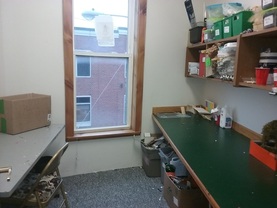 "clean" "clean" Last Friday I walked into the DRC project room and threw a wee bit of a conniption (no worries, the kids are not here on Friday). It looked like every cardboard box had been chewed into small bite size pieces, packing peanuts were strewn around like confetti, along with bits of paper, popsicle sticks, wooden skewers, paint brushes, tape, and all the other project materials that are readily available for the kids to use. My conclusion: we had either been hit by a small cyclone, or five kids had been struck by some serious inspiration over the past week and didn't clean up afterward. I am leaning towards the kids considering no one else reported damage from extreme weather in local neighborhoods. After my mini melt-down and cleaning spree (the recycling bin is now considerably fuller than it was last week), I took a mental step back to analyze why I was feeling upset. After all, I am the one who provided all of the supplies that went into that mess and I am a huge proponent of learning through a hands on, experiential process which always (at least in my case) involves some serious mess making. I finally pin-pointed the main reason for my distress, very few finished “things” were actually produced from all that creative flow, energy and resulting mess. As adults we generally focus on the tangible results of any project. “What did you make?” “What does it do?” “How does it work?”, are often questions we find ourselves asking a child when they proudly “show and tell” their personal creations. Very often children are flummoxed by our interrogations. “I just made it,” is usually the response, or in one particular case I get very detailed explanations about how such things as a cardboard tubes that have been wrapped like mummies in blue painters tape, work in his world. The child is obviously pure genius and gets more and more frustrated with my inability to understand what he is so desperately trying to explain. In my head, meanwhile, I am screaming, “but what in God's name is it?” For many kids the process (mess) of creating is enough. They don't need or even desire a finished product. They experimented, explored ideas, and learned what they needed to before moving on to the next process. I completely understand this concept from the intellectual and child-development perspective (see how nicely I am explaining it), but not on the visceral, and emotional level. I enjoy creating messes and I love to encourage others to make them too, but I hate (NO - really despise), the resulting disarray, disorder, and detritus which always brings on an overwhelming feeling of mental confusion and internal disquiet (I learned just last year that I am an ultra-sensitive person---good to know that I am not the only one and I that am not completely wacko!) How then do we balance these two essential components: the space, materials, and equipment for all of our processes and creativity, as well as an orderly, organized work environment (Maria's sanity)? My suggestion during our first Community meeting Monday morning, as always, was that we start with a conversation that includes observations, statements of need, lots of listening, and ultimately requests and compromise. Their plan so far includes placing a recycling bin in the project room, taking home all the finished projects, cleaning up supplies when they are finished, and dismantling any projects that they don't want to keep and put the components away if they are still usable. Like everything else around here --- this too will be a process of experimentation and exploration filled with heaps of opportunity for learning, for everyone, along the way. 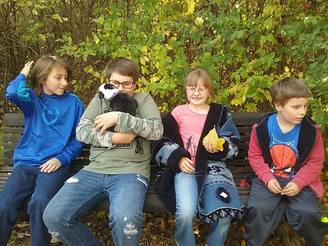 ,There is no denying that bullying is a huge problem. And, it isn't just relegated to the school yard; intimidation is found anywhere that one person or group of people feel they have more power than others or conversely when a person or group of people feel (are) powerless in any given situation. I recently heard a report on NPR about women scientists being harassed in the world of academia. Really, in 2015, women have to either put up and shut up, or loose their academic standing, funding, reputation, or their jobs? Or, in other cases, people (Whistle Blowers) who are willing to tell the truth and bring injustices or outright criminal activity to light, themselves end up with criminal records, again, really? How is this possible? I, as well as others, find this beyond appalling! Multiple programs have been developed to combat bullying and other forms of intimidation. I will contend, that for the most part, these programs (although well-intentioned) are doomed to fail for the simple reason that they do not address the cultural norms of competition and coercion which are the root cause of bullying. Let me be completely explicit--- the only way to stop bullying is to change the culture that supports it! I am quite proud to say that Deep Root Center, the other Centers in the Liberated Learners Network, and some democratic/free schools are making that cultural shift possible by eradicating rivalry (one-up-man ship) and compulsion from their everyday operations. In several past posts, I have argued that an environment that is completely non-competitive and non-coercive, that provides free choice, and fosters a culture of kindness, humility, creativity, as well as respect will allow for intrinsic motivation and confidence to flourish, instead of learned helplessness and entitlement; which then overcomes prejudice, bullying behavior, intimidation, injustice, and judgment. I witness conduct, daily, that serves as abundant evidence to support my stance. In recent weeks we have welcomed several new students, as well as a visitors, through the Deep Root Center doors. In every case these kids have been enfolded seamlessly into the daily activities and social nuances without hesitation, or questions asked, and with an overwhelming attention to kindness. I will reiterate, this behavior is not in any way directed or controlled by me. It is indeed a natural and beautiful thing to observe. Kids taking care of each other, because they recognize that Deep Root Center is a special place where they are completely safe to allow their true naturally compassionate, imaginative, empathetic selves shine. No one will make fun of them or call them weak or sissy, or any of the other unmentionable names they have been called along the way. These kids understand that DRC is their community (they own it) and they realize that as a group they get to determine the feelings engendered within that community. They have all experienced bullying on multiple levels and are determined to make DRC an open, safe, and accepting space for anyone who wants to join them. DRC members are free to choose what, how, and when to learn, which activities to participate in, who to hang out with, as well as how to behave. I am so very proud to say, in every circumstance, their choices reflect the respect, care, and kindness they feel from every person around them. * This one was inspired by the awesome kids I get to hang out with every day and by the NPR report previously mentioned. 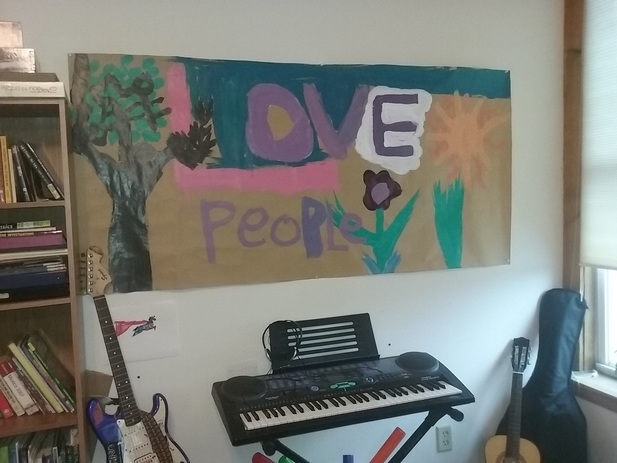 We humans have a built in biological need to name and sort every single thing we encounter, whether they are people, behaviors, emotions, animals, plants, inanimate objects, fungi, storms, illnesses, etc. On one hand classifying allows us to make that comfortable personal connection and identify kindred spirits, however, in many instances assigning a label is equal to placing judgment on them. In a very simple way, this automatic categorization makes it easier to discredit them and in that instant of identifying the differences, we have created “the other”. They are not like me and they don't think like me; therefore, I can disregard, ignore, ridicule, and dislike them. Governments, religions, businesses and organizations have long ago learned to capitalize on this basic human biological characteristic by developing propaganda that perpetuates the cycle of identification, distrust, formation of alliances, and hate. How then can we escape the trap so easily set by our own natural inclinations? I believe that becoming aware of this tendency is probably the first step. Every time you find yourself sharing a political post or making a comment on another post, stop for a moment and ask yourself, “Is this something that will bring all people together or will it divide us even further?” Whenever, you have that awareness that the person in front of or beside you is completely different from you, smile and meet their eyes. If you find yourself automatically labeling someone you see walking down the street, stop and recognize your behavior. And when you are ready, go even further: Be willing to ask questions, when you hear something that strikes you as disrespectful or senseless. Be willing to be the person who stands up for all those others who are not able to defend themselves. Be willing to identify an injustice and challenge the misconduct behind it. Be willing to make those personal connections that may feel uncomfortable. Be willing to walk in another's shoes. Be willing to be the person who sends unconditional love into the world. It can be that simple- Send kindness. Send humility. Send your humanness. Send your creativity. Send your fierceness. And yes, send your love without expectation and you will be surprised at what comes back. This profound message Love People!, painted by a very wise eight year old, is prominently displayed on the wall at DRC. *This one is a bonus. I simply felt like writing last night and this is what came out. 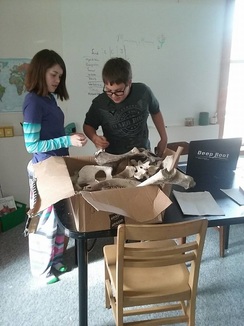 Exploring a box of cow bones during "bone" class Exploring a box of cow bones during "bone" class The art and science of making decisions requires two components: free choice and personal confidence. If there are no options to chose from, there is, in effect, no decision to be made. If you do not have the self-assurance to make choices for yourself or others, you will likely choose inaction, allow others to make the decision for you, or intimidate others out of exasperation. These factors are directly linked, because we live, work, or study in highly pressurized environments where rules, regulations, and policies (see this blog post) strip the need for individuality, uniqueness, and offer little freedom, as well as very few options, thereby leaving the population with an abundance of frustration and little or no self-confidence in regards to making decisions. I believe there are two distinct responses that can evolve from the above scenario: The first being a developed sense of entitlement which often looks very similar to confidence, but is actually on the opposite end of the spectrum. The second is learned helplessness which sadly appears exactly as it sounds. I will argue that some children will acquire a sense of entitlement, because even though they live in these very controlled atmospheres, they seemingly have everything they could want and get nearly all the “stuff” they ask for. They know exactly how much “work” they need to put into something to get the desired result. This abundance gives them the false idea that they are entitled to good grades, praise, and all the respect they could possibly desire. I believe that entitlement actually leads to bullying, because despite the largess, these people don't have the power to make decisions or take command of their own lives and therefore behave badly towards others to create that perceived sense of authority. Learned helplessness, on the other hand, comes from existing in that same controlled environment, but feeling the weight of defeat on every single level you can possibly imagine. These are the people who have been told time and again, through words and actions, that they are just not good enough, because they have the wrong name, are in the wrong socioeconomic class, are the wrong color, learn the wrong way, wear the wrong clothing, come from the wrong geographical location, identify as the wrong gender, etc. Living is a struggle, never mind finding the inner strength and resources to excel. There you have it, two opposite and often devastating results to the same societal pressures. I will adamantly assert that these above scenarios can be addressed (and, dare I proclaim, erased) by simply adopting a self-directed educational model; where everyone is offered the opportunity to explore an endless variety of subject options and where they are guided and supported to excel in whichever topics they choose, whether it is hardcore traditional academic subjects, hands-on creative tasks, trade skills, or all of the above. You won't find carrots and sticks or extrinsic rewards; you will however discover the inner sense of satisfaction of having worked hard to achieve the desired results. This in a nutshell is how autonomy and intrinsic motivation is developed. No one tells you what to do, everything you achieve is the result of following your passion and personal desires based on those decisions and exertions you made along the way. Education is not just about learning the random rote facts, figures, and incidentals, it is a conversation between student and teacher built on respect, honesty, and understanding. There is no end game, because education is a life-long process that opens up the world of options to each student (we are all students, because we never stop learning). Fostering confident, passionate, strong, motivated, empathetic, respectful, and all round pleasant human beings requires little more than a supportive, open and free environment, filled with confident, passionate, strong, motivated, empathetic, respectful, all round pleasant human beings! * I will reiterate, I do not have a degree in psychology and, in fact, only took one psych class entitled Child Development at SUNY Potsdam. My arguments and assertions are based solely on my personal observations, anecdotal evidence, and life experience. 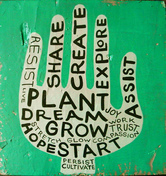 Passion is the driving force behind every great idea, concept, creation, and vision. When you find passion - grab it and hold on tight because you are in for the ride of your life! notes: Enjoy this short epiphany. Stay tuned for the piece I tried to write last weekend; it will be experiencing serious revision this coming weekend. |
|
© 2024 Whole Learners, Inc. 501(c)3
Deep Root Center
48 Riverside Drive, Canton, NY 13617
315*323*1435/[email protected]
Deep Root Center
48 Riverside Drive, Canton, NY 13617
315*323*1435/[email protected]
